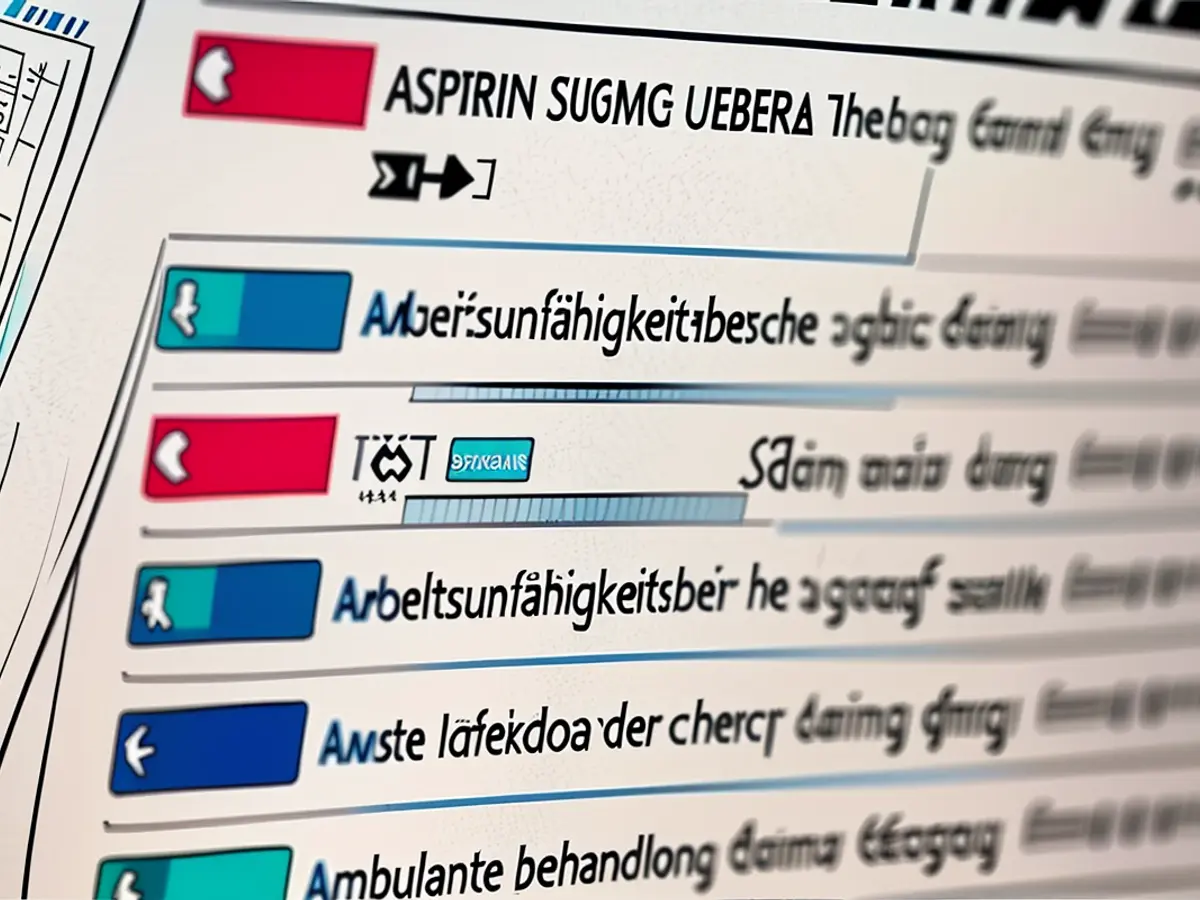- Ministers and doctors of the treasury for electronic patient records
Rhineland-Palatinate's Health Minister Clemens Hoch and Deputy Chairman of the Association of Statutory Health Insurance Physicians (KV), Andreas Bartels, find the introduction of the electronic health record (EHR) very helpful. "I believe that the EHR must exist, and that in its purest form," said SPD politician and Minister Hoch in an interview with the German Press Agency in Mainz. Bartels also believes that the EHR should contain all information about the patient, but participation should be voluntary.
According to Hoch and Bartels, digitization in medicine also offers many other opportunities, such as telemedicine services. In the US, people experiencing a panic attack can already speak to an artificial intelligence (AI) that can help calm them down, Bartels reported. However, the doctor also noted, "Digitalization does not solve our structural problems."
Minister Hoch: "A little bit of patient record" won't do
"The EHR would be incredibly helpful in the system," said Hoch. He cited patients with recurring complaints like colic, where different doctors would repeatedly perform the same tests because they didn't know the results of previous ones.
The Minister is clear about the EHR: "Either I say I don't want an EHR, or I fully commit to it," he emphasized. "A little bit of patient record" won't do.
Bartels added that doctors must be sure that no important information is missing when they open the EHR, as this could potentially cause serious complications in medication.
He also understands that information about abortions, for example, could be a problem for patients traveling to countries where it's banned and their EHR is opened.
All medications and pre-existing conditions visible at once
The anesthesiologist praised the benefits of the EHR, as he had experienced it in Denmark: "You're in the ambulance, the patient is unconscious. You enter the insurance number, and you see all the medications and pre-existing conditions at once."
"And these are information that are really extremely important at that moment," Bartels said. The EHR is also very helpful for elderly people who might not remember which tablets they've taken, he added.
In Austria, where the EHR has been available for years, over 90% of patients now participate voluntarily, Bartels said. In Germany, a survey found that a large majority of the population accepts the EHR. According to a survey commissioned by the digital association Bitkom, 71% of respondents said they already use or will use the EHR in the future.
Telemedicine, or the "tele-doctor," is also becoming more accepted, Bartels reported. "Especially the younger generation has no problem with it." Many no longer want to sit in a practice waiting for an hour and a half or two hours. They book an appointment and expect it to be reasonably reliable.
However, many older patients still prefer direct contact with their doctor, Bartels said. "That closeness to the patient is something the older generation still needs much more than our younger generation."
Telemedicine enables "a local medical care using state-of-the-art technology," according to Minister Hoch.
A current, very successful example is the pilot project Tele-Doctor of his cabinet colleague, Interior Minister Michael Ebling (also SPD). With the help of Tele-Doctor, remote consultation with an emergency service by a doctor will soon be possible. The goal is to improve quality by bridging times until a doctor arrives on site. With the nationwide introduction, Rhineland-Palatinate aims to be a pioneer nationwide.
The introduction of a comprehensive electronic health record (EHR) as proposed by Hoch and Bartels could significantly reduce the need for repetitive tests for patients with recurring complaints, such as colic. In such cases, an EHR would allow doctors to access previous test results, thereby avoiding unnecessary procedures.
Furthermore, Bartels emphasized the importance of ensuring that the EHR contains all necessary information about a patient, as missing data could potentially lead to serious complications in medication.








